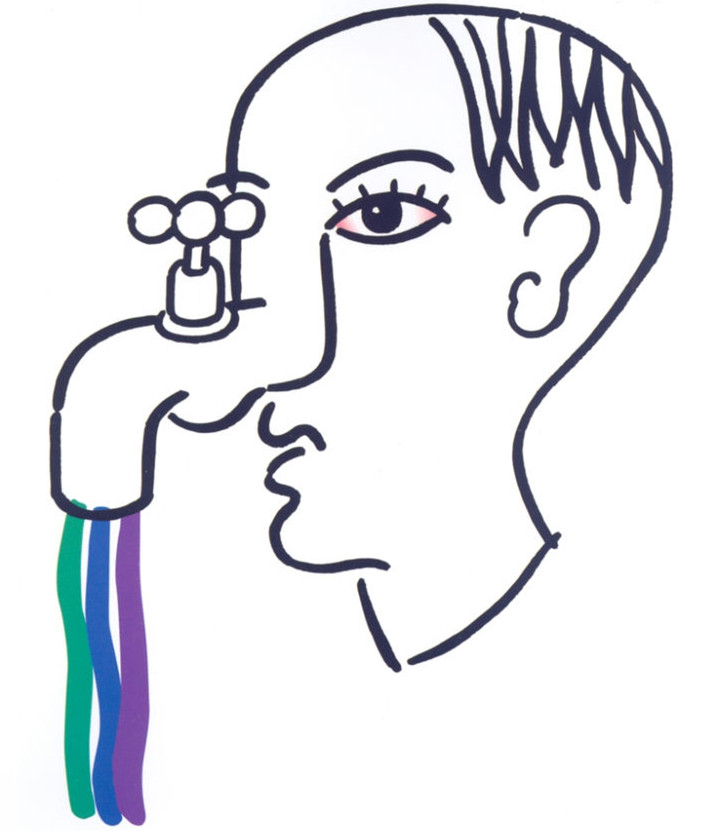(单词翻译:单击)
中英文本
They say that the nose knows. But it still gets its marching orders from the brain — at least when it comes to the lungs. Got that? Nose to brain to lungs. Because a new study shows that when people with asthma think they’re smelling something noxious, their airways become inflamed — even when the odor is harmless. The finding is in the Journal of Psychosomatic Research.
他们说鼻子能够知晓人的一些事情。但归根到底,鼻子是从大脑获取的命令——至少对于肺来说是这样的。明白了吗?鼻脑肺,这是个相互关联的系统。一项新的研究表明:得哮喘的人总是觉得他们呼吸的空气是有害的,于是他们的呼吸道开始发炎——即使他们呼吸的空气是无害的。该发现发表在《身心研究学》杂志中。
Asthma attacks can be triggered by pollen, dust, harsh chemicals or scents. These environmental annoyances constrict the airways in the lung, making breathing difficult.
花粉、灰尘、刺激性化学物质或气味可引发哮喘。这些环境因素使得肺部呼吸道收缩,从而导致呼吸困难。

In this study, researchers wanted to see whether an individual’s assumptions have any influence over this breathtaking series of events. So they exposed 17 asthma sufferers to a benign chemical that smells like roses for 15 minutes. Nine subjects were told the fragrance was a potential irritant, the other eight that it would be therapeutic.
在该研究中,研究人员想了解人的臆想是否会对这一系列的惊人事件产生任何影响。因此,他们将17位哮喘病患者暴露在玫瑰味的无害化学气体中15分钟。其中9人被告知该气体含有潜在刺激物,而其余8人则被告知该气体具有治疗哮喘的作用。
The results were as plain as the nose on your face: subjects who expected an irritant experienced inflammation. And those who were primed to be soothed had no adverse reactions — even if they were normally bothered by perfumes.
结果再清晰不过了:那些认为该气体含有刺激物的人患上了炎症,而那些认为该气体有治疗作用的人反而没有感到不适——即使他们同样也闻着这一气体。
The results suggest that a rose by any other name would smell as sweet. Or be as irritating as you expect it will.
研究表明:易名玫瑰,闻着香与不香就看你是怎么想的了。
词语解释
1.marching orders 开拨令;出发令;行军令
Teachers have given you marching orders for how to support your child in school this year.
教师们已经向你们发出了如何在本学年中支持孩子的行军令。
2.potential irritant 潜在刺激物
Hazy weather is filled with potential irritant.
雾霾天气充斥着许多潜在刺激物。
3.be primed to 做准备
"In that moment of babbling, babies seem to be primed to take in more information, " he said.
“在学话的这个阶段,婴儿似乎做好了准备吸收更多的信息。”他说。


